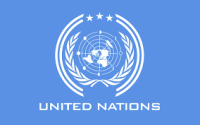
National Professional Officers (NPOs)
National Professional Officers (NPOs) are locally recruited professionals in the United Nations system. They provide professional expertise at the national level and help in delivering program activities. NPO positions require a deep understanding of the local culture, systems, and protocols.
National Professional Officers are categorized into different levels – NO-A, NO-B, and NO-C (also known as NO-1, NO-2, and NO-3 in some agencies). Each level has different roles, responsibilities, and requirements. Here’s a brief overview:
NO-A / NO-1: This is the entry-level for NPOs. At this level, officers typically work under close supervision and are expected to become increasingly proficient in their specific area of work. The minimum requirement is usually a Bachelor’s degree and a few years of relevant professional experience.
NO-B / NO-2: Officers at this level have a greater degree of responsibility and are expected to carry out their duties with a degree of independence, often supervising junior staff. They generally need a Master’s degree or equivalent, along with several years of relevant professional experience.
NO-C / NO-3: This is a senior level for NPOs. Officers at this level typically have significant responsibilities and are expected to manage complex programs or projects with minimal supervision. The minimum requirement is usually a Master’s degree or equivalent, along with substantial years of relevant professional experience.
NO-D: This is a senior level, very rarely offered, requiring a minimum of 7 years of work experience. Officers at this level have significant responsibilities, managing substantial programs or projects, often with high degrees of independence and decision-making power.
NO-E: The highest level of NPOs, also very rarely offered, for roles requiring over 7 years of work experience. Officers at this level are typically in leadership positions, responsible for strategic planning and high-level decision making.
Note that the specific requirements for education and experience can vary by position and agency. Fluency in the national language and at least one UN official language is usually required for all levels. NPOs are generally nationals of the country where they serve.
National Professional Officers are normally locally recruited and perform functions at the professional level. The qualifications for National Professional Officers are the same as for the Professional category and require as a minimum a first-level university degree. Jobs for National Professional Officers can only be found in non-headquarters duty stations.
National Professional Officers are nationals of the country in which they are serving and their functions must have a national context, i.e. functions that require national experience or knowledge of the national language, culture, institutions, and systems. Examples of these positions include human rights officers, political affairs officers, legal officers, medical officers, child protection officers, humanitarian affairs officers, interpreters and civil engineers.
There are five levels of National Professional Officers, A through E. The higher the level, the more responsibilities the job requires and the more work experience is necessary.
- NO-A minimum 1 to 2 years of work experience
- NO- B minimum 2 to 3 years of work experience
- NO- C minimum 5 years of work experience
- NO – D minimum 7 years of work experience (very rarely position)
- NO – E over 7 years of work experience (exteremely rarely position).
Moving from a General Service (GS) position to a Professional (P) level position within the United Nations system can be a significant career advancement. Here are some steps to consider:
- Education: Professional positions usually require a university degree, typically a Master’s degree or equivalent in a relevant field. If you don’t already have such a degree, obtaining one could be a critical step.
- Experience: Professional roles usually require a certain amount of relevant professional experience. Experience in international environments or in several different countries can be particularly valuable.
- Language Skills: Proficiency in at least two of the UN’s official languages (Arabic, Chinese, English, French, Russian, and Spanish) is typically required for Professional positions.
- Competency Development: The UN looks for certain core competencies in its professional staff, including communication, teamwork, planning and organizing, accountability, creativity, and leadership. Seek out opportunities to develop these competencies in your current role.
- Apply for Professional Positions: Monitor the UN’s job boards for Professional level positions that match your qualifications and interests. Make sure your application clearly demonstrates how you meet the requirements for the position.
- Networking: Building relationships with others in the UN system can be helpful. They can provide advice, mentorship, and may alert you to job opportunities.
- G to P Examination: In some cases, UN conducts examinations for General Service staff to move to Professional categories. This process is known as the G to P examination or the National Competitive Recruitment Examination (NCRE) in some UN entities.
Remember that moving from a GS to a P position is a significant step and may take time and patience. It often involves not only a change in responsibilities but also a shift from a support role to one that requires strategic thinking and leadership.
